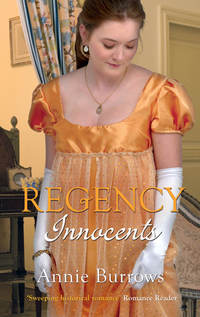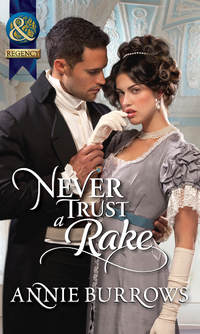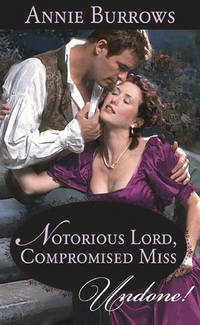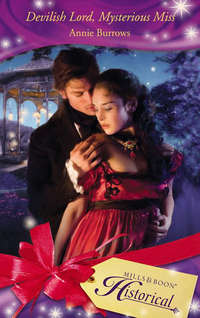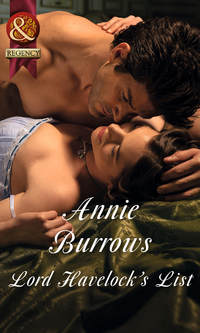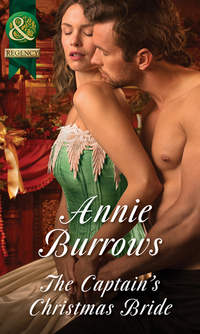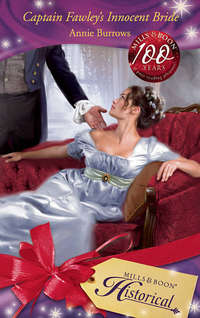
Полная версия
Four Regency Rogues
* * *
Lord and Lady Gilford lived in a large mansion on the road between Amerleigh and Scofield, surrounded by a park and mixed woodland. The main part of the house was a hundred years old, but it had been added to in recent years and the whole of the inside refurbished and refurnished. Apart from the Temples, who ceased to count when the late Earl removed to the dower house, they were the haut monde of the area and an invitation to an occasion at their home was prized by local society. Lady Gilford had taken great pains with all the arrangements, the food and wine and music, only to find there was a shortage of fireworks. The supplier, who had a workshop in Shrewsbury, told her almost his entire stock had been bought up by another customer whom he declined to name. Her ladyship purchased what was left, hoping that her guests would be so mellow with food and drink by the end of the evening, they would not notice the Grand Finale was less than grand.
Roland, dressed in impeccable good taste, in a black evening coat, black trousers and a pristine white shirt, arrived only a few minutes late and was greeted warmly by Lady Gilford, who attached herself to him and took him round to make sure he knew everyone. When that was done, she invited him to join her party, which consisted of herself and her husband, her son, the lieutenant of the invitation; her daughter, Eleanor; and an elderly aunt. Eleanor was about eighteen, as plump as her mother was thin, with pale blonde hair, carefully dressed to make it look thicker than it really was. She was also painfully shy, which was obviously a source of irritation to her mother. Roland smiled at her and offered the usual politeness before marking her card for two country dances, which made the poor girl’s cheeks turn bright pink.
After the first of these, she left him to dance with young Leonard Manton and Roland sat down to talk to Lieutenant Gilford, enquiring about his service. ‘How did you manage to arrive home so quickly?’ he asked him.
‘I was in Lisbon with the Commissariat when the news came through and hopped on the first ship out. I saw no point in hanging about and Papa made it right with the Colonel.’
His mother, who had been busying herself with her guests, returned to them. ‘My goodness, we cannot have two handsome young men sitting together and not dancing. Thomas, go and ask Miss Manton to stand up with you. As for you, my lord, I am sure I can find you a partner.’
‘Thank you, my lady,’ he said, with a smile. ‘I think I can manage.’ He left her and went to ask Martha Brandon to dance, realising as he did so that he was probably playing right into her hands, because he saw Martin Elliott scowling at him. After that, he found himself standing up with several other young ladies and then with Miss Gilford again. He escorted her into supper, much to the chagrin of Lady Brandon. He was beginning to feel decidedly uncomfortable, though not for a moment did his polite smile leave his face. Returning from supper, he stationed himself in an alcove to watch the dancers and found himself unaccountably wishing Miss Cartwright were present. He had enjoyed that waltz with her and the discovery that she was truly beautiful. If she were here, he might enjoy it more. The admission, if only to himself, surprised him.
‘It must seem strange. Being home again, I mean.’
He turned to find Lord Gilford standing beside him. He had been a sea-faring man, which was evidenced by his weatherbeaten complexion and his way of standing with his feet braced apart as if still on the deck of a ship. ‘Yes, it is a little.’
‘Coming about, are you?’
He was annoyed at the impertinence of the question, but too polite to show it. ‘I believe so.’
‘Glad to hear it. Not married, though?’
‘No time for it.’
‘But thinking of it? After all, a single man with a title and a great estate must look for a wife at some point.’
‘That goes without saying, but at the moment I am not contemplating marriage.’
‘No? But if you are not, then there are going to be a number of disappointed mamas and their daughters. The little beauties are all in competition for you.’
Roland smiled wryly. ‘I should hate to disappoint them, but there is no competition. I am not a prize to be won.’
His lordship gave a little snorty laugh of embarrassment. ‘No, of course not. But you should perhaps be careful not to give the gabble-grinders fuel for their gossip.’
‘What do you mean?’
‘My wife tells me you are often to be seen in Miss Cartwright’s company and she without a chaperon.’
Roland was furious and did not trouble to hide it ‘That, sir, is my affair.’
‘You may say so, but it won’t do, you know. Your father and hers became mortal enemies and she is a chip off the old block, riding around as if she owned the whole village. I advise you to assert yourself before she rides all over you.’
Roland was taken aback by the man’s impudence. ‘No one rides over me,’ he told him coldly.
‘Of course not. But did you know her father was a mill hand before he rose to become manager and married the mill owner’s daughter and became very rich through the trade?’ His derogatory emphasis on the last word betrayed what he felt about that. ‘She is very high in the instep, but not one of us, Amerleigh, never one of us, not of any consequence, at all. Apart from Lady Brandon, who hardly counts, she is not accepted in polite circles. You ought to bear that in mind.’
‘What makes you suppose I have that particular lady in mind, or any lady for that matter?’ Roland reminded himself that the man was his host and it would be ill mannered to be rude, but his voice betrayed the fact that he was angry, even while holding himself in check.
‘Hold hard!’ His lordship held up both hands as if to ward off an imaginary blow. ‘I meant no disrespect. I told her ladyship it would not serve, but she would have me speak to you, to warn you…’
‘I do not need to be warned,’ Roland said icily. ‘But thank her ladyship for me.’
And with that he walked away, out of the room and through a conservatory into the garden.
It was a clear, starlit night. Behind him the orchestra was playing a waltz and he found himself thinking of Charlotte Cartwright again. Did she mind being treated like a pariah? He had heard about her own party; Mrs Biggs had been full of it. The whole Biggs family was going, even young Hannah had been invited if he would be so good as to release her from her work. Of course he had agreed, almost wishing he could go too. Even from a distance he could hear the music.
Turning back to the house, he sought out his hostess, thanked her for her hospitality and took his leave, much to her chagrin. Then he walked out into the night again and, instead of turning for home, made for the sound of merriment coming from somewhere along the Amerleigh to Scofield road.
He came upon the procession just before it reached Scofield. There was a very noisy band playing a marching tune and it was followed by a great crowd, all dressed in their Sunday best, waving flags and singing. At the gates of the mill, which stood wide open, Charlotte was waiting for them. She was wearing a skirt short enough to reveal her ankles and feet clad in half-boots, and a dark-coloured burnoose with the hood thrown back. He watched as the workers, including, he noticed, Corporal Travers and others from his estate, marched past her and into the mill, which was blazing with light.
After they had all gone in, she saw him standing on the other side of the road in his fine evening clothes and wondered why he was there. She called out to him. ‘What brings you here, my lord? Boredom or curiosity?’
He laughed. ‘Both.’
‘Would you like to join us? No one here is bored, I can promise you.’
He crossed the road and walked up to her. ‘Thank you. I should like that very much, provided my presence does not spoil anyone else’s enjoyment.’
‘Shall we ask them?’ She led the way into the schoolroom, which had been cleared of furniture. Already the musicians were playing a lively dance tune and the floor was crowded with dancers. A long table along one wall was so loaded with food there was no room to put another dish. At the end a man stood beside a barrel of beer, dispensing its contents. There was also cordial for the children. Charlotte clapped her hands and the band fell silent and everyone turned towards her.
‘Ladies and gentlemen,’ she said, an address that raised a laugh and a cheer. ‘His lordship finds the entertainment at Gilford House boring. We are not bored, are we?’
‘No!’ they yelled.
‘Shall we let him share our party?’
‘Yes!’
He knew they would have agreed to anything she suggested, considering she had provided all the food and drink and they were already merry on it. ‘Thank you,’ he said with a smile. ‘Carry on, don’t mind me.’
They took him at his word and the gaiety continued. The level of beer in the barrel went down and the loaded plates emptied and were refilled. The dancing became more boisterous and Roland and Charlotte were pulled into it, being grabbed and hauled round by mill workers. The estate workers were a little more restrained at first, but soon they, too, lost their awe of the Earl and began enjoying themselves, especially as he joined in with enthusiasm, dancing a gavotte with Mrs Biggs, while Charlotte danced with Corporal Travers, who was in uniform and very popular with both the men, who wanted to hear about the fighting, and with the women, who appreciated his rugged good looks.
In a pause in the dancing Roland found himself standing beside Charlotte again. He wondered why he had ever thought her cold. She was flushed and her eyes sparkled. She was truly enjoying herself and seemed to have forgotten they were at daggers drawn. And then she spoke and reminded him. ‘In the ordinary way of things, this is the schoolroom,’ she said. ‘The law requires me to teach the children to read and little else, but some are quite intelligent enough to go further than that, so here they are taught not only to read and write, but simple mathematics, some geography, a little history.’ She smiled. ‘It is not only for the workers, but their younger siblings.’
‘But they do not play.’
‘This is a place of work, my lord, not a playground. It is all very well for the rich to play, they do not have to earn a living, but days like today put new heart into everyone and they are not unhappy. The only time they think about it is when some well-meaning philanthropist puts ideas into their heads or, what is worse, one of their own number with a grudge makes trouble.’
Was she warning him not to meddle? he wondered. ‘Is anyone making trouble?’
‘There are always troublemakers, my lord, though none that I know of here.’
Looking round at the joyful crowd, he could well believe it. She was such a strange mixture of benevolence and hardness, it was difficult to understand her. She could shut an employee out who was a few minutes late for work and yet she could take the trouble to distribute food to those in need. Her clattering looms kept her workers chained to them like slaves and yet she wanted to educate them, even though education gave people ambition, which might in the end not be to her advantage. She appeared not to care what people thought of her, but he had seen enough of human nature to know that she was susceptible. He would be her friend if only she would let him.
At midnight, the musicians put away their instruments and the leftover food was packed into little parcels so that everyone had something to take home, then they trooped out to the common for the fireworks, singing lustily as they went. It was a wonderful display, set out by Charlotte’s mine manager, who knew a thing or two about explosives. Rocket after rocket shot skywards and exploded into the air, releasing a myriad of coloured lights. Roland, watching the faces of the children, alight with wonder, felt a tug at his heart. He would like children of his own, to nurture and love, someone to come after him, to keep his name alive, to look after Amerleigh so that it never again drifted into neglect. And to make that happen, he needed a wife. Sooner or later he would have to give some thought to it.
The trouble was that whenever that idea came into his head, he found himself thinking of the woman who stood beside him. He could not banish her from his mind. She invaded every aspect of his life, every decision he made, almost every word he uttered. She was with him every hour of the day and, worst of all, through the lonely watches of the night. Who she was, what she did, the life she led, made her entirely ineligible as a wife for him. That gabble-grinder, Gilford, was right, damn him!
When the last shower had drifted to earth and there was silence, someone called for three cheers for Miss Cartwright and the hills echoed to the sound. And then old John Bennett, bowed with a lifetime of working in the gardens at Amerleigh Hall, called for three cheers for his lordship and again the hills echoed. Roland wondered if they could be heard at Gilford House.
After standing about for several minutes, reluctant to call it a night, everyone slowly drifted away, many with a rolling gait that betrayed the amount of good ale they had consumed. Roland stood beside Charlotte, watching them go, as reluctant as they were to go home. If only everyone could always be as happy and cheerful as they had been this night, there would be no dissent, no quarrels, no need to resort to war. Or litigation.
‘I have my curricle at the mill,’ she said, as they reached the road. ‘I can take you back to Gilford House, if you wish. It is not out of my way.’
‘I am not going back there.’
‘Then allow me to take you home to Amerleigh Hall.’
He laughed. ‘When I suggested escorting you the other night, you disdained my offer.’
‘But you did it anyway.’
‘Oh.’
‘Did you think I did not know you were behind me?’ She was laughing up at him, enjoying his discomfiture.
‘It must have been someone else.’
‘Of course. Someone else, how silly of me.’
They had arrived back at the mill. The lights had all been extinguished except the lamp over the gates, which illuminated the horse and curricle being held in readiness by the night watchman. ‘Now, do you come with me or do you walk home by yourself? The people might give you three hearty cheers, but your watch and fob might be too great a temptation if one or two of them met you alone in the dark.’
‘Thank you.’ He helped her up and climbed up beside her, taking the reins from her fingers. He’d be damned if he’d allow himself to be driven by a woman, however capable.
They set off at a walk. He was in no hurry to part from her. The air was balmy, the black velvet of the night sky was pierced with a myriad of diamond-like stars and, above the copse of trees on the slope of the hills, a new moon hung motionless. A faint shushing sound drifted on the air and he looked up to see a few red and green sparks flying skywards. They were passing Gilford House.
Charlotte laughed suddenly. ‘Not up to mine, are they?’ she said.
He knew she was referring to the fireworks. ‘No, they are altogether more genteel.’
‘Are you sure you do not want to go back?’
‘Positive. At the moment I would not be anywhere else in the world.’
‘Ah, I see you know how to frame a compliment.’ He did not answer and she went on, ‘What happened? Why did you leave the ball?’
‘It was deadly dull and the efforts of the mamas and their daughters too obvious for words. I felt I was walking on eggs not to give offence.’
‘But you will have to choose one of them and that will offend all the rest.’
‘I do not have to choose at all.’ He turned to look at her, sitting beside him so composed, so cool, so in command of herself, he found himself wondering what it would take to rouse her. The only emotion she had shown him was anger, cool politeness and a willingness to bandy words, though she was soft enough with Tommy and the Biggs’s baby. ‘What about you? Do you not wish for a husband?’
‘No, for I doubt I could find anyone to put up with me. I am too used to running my own life and doing as I choose, I should drive a husband to distraction.’
‘You must have had offers?’
‘From milksops after my wealth. They do not see me as a wife, but as the provider of an easy life. They do not stay about long.’
‘Then we are both at an impasse. You have too much money and I have too much rank to find true love. What a pity!’
She was not sure whether he was bamming her or not, but decided not to comment. They rode on in silence until he turned into the gates of the Hall and trotted up the drive to the front door, where he stopped. Should he ask her in? The absence of a chaperon seemed not to have occurred to her, but then she went about on her own all the time. He had never seen anything remotely like a companion or even a maid with her, though he supposed she had one. And if she did go in with him, what could he offer her in the way of refreshment?
He jumped down and was about to hand the reins to her, when the front door opened and Travers came down the steps, having arrived back half an hour earlier. ‘Shall I look after the curricle, Major?’
Roland turned back to Charlotte to find her standing beside him. He could hardly tell her to climb back in and go home. ‘Yes, Corporal, if you please, and do you think you can find us some refreshment? I am sure Mrs Fields has gone to bed.’
‘Yes, Major, she has, but she left something out for you. I’ll bring it to the drawing room directly.’
He led the pony away and Roland put his hand under Charlotte’s elbow and ushered her into the house.
It was only curiosity that made her leave the curricle, Charlotte told herself. She had not been in the house since that fateful night six years before and by all accounts it was very different now. It would be good to see how far the Temples had fallen since then, but it was difficult to convince herself they deserved it, when the man beside her bore no resemblance whatever to the stripling who had disdained her. If it had not been for hearing that rejection and knowing of her father’s unmitigated hatred of the old Earl, who had so blatantly cheated him, she might have come to like and admire the present owner of Amerleigh Hall, might even have fallen in love with him. Fallen in love! What did she know of that? Nothing, nor ever would. Better not to think of it. But there was inside her an empty feeling, as if there should be something there that was absent.
She looked about her as they entered the inner hall. There were rugs on the marble-tiled floor. A table stood to one side and chairs were placed between the doors to the rooms. A solid oak staircase led up from the middle and divided on a half-landing before the two branches went up again to the first floor. There were no ornaments, no pictures.
He led the way into the drawing room. This was carpeted and properly furnished with tables and chairs and two sofas. The pale green paint on the walls was new and the curtains, drawn against the night, were of a rich ruby-red damask. A hand-painted screen stood before the empty hearth. Again there were no pictures or ornaments.
‘As you see, we have not finished refurbishing,’ he told her. ‘My mother is seeing to the interior while I look after the outside. It will take some time, I think.’
‘But it is lovely house, so full of history. It seems to have an atmosphere of its own.’
‘Yes, some of it goes back to Tudor times, but there have been additions over the years. It is something of a rabbit warren, but it has always been my home and I am very attached to it.’
‘You would do anything to keep it?’ she asked curiously.
‘I suppose I would. Within bounds, of course.’
‘Even to marrying one of those daughters of the wealthy whom you pretend to disdain?’
‘I hope it never comes to that. I am not entirely without means.’ His little nest egg was fast disappearing, but he would not admit that.
Travers arrived with a tea tray, which he set down upon one of the tables, and then went to fetch another on which was a plate of cold roast chicken legs, another of bread and butter and a third containing an assortment of little cakes. Roland and Charlotte watched in silence as he set them out. ‘Thank you, Travers,’ Roland said. ‘We can manage.’
He indicated the teapot to Charlotte. ‘Shall you pour?’
They sat at the table, she poured the tea and they picked at the food, but the intimacy they had been enjoying had dissipated, blown away with the opening of the door. They conversed politely about the peace just concluded, about the wisdom of allowing Napoleon to live on Elba, about the squabbling of the allied powers as they set about carving Europe up between them, but Charlotte found herself thinking of what had happened six years before and wondered what on earth she was doing in that house. She must be mad! As soon as they had finished their meal, she said she must be leaving.
He stood up and rang for Travers to fetch the curricle to the door, then he accompanied her to the front door and down the steps. Travers stood at the pony’s head, waiting. ‘Shall I drive you home?’
She laughed. ‘And then I should have to drive you back again and we could go backwards and forwards all night. I am perfectly capable, as well you know.’
He grinned. ‘So independent. Is there anything you are not capable of tackling?’
‘Oh, I am sure there must be something,’ she said airily. ‘I will let you know when I have discovered it. Goodnight, my lord.’
‘Goodnight, Miss Cartwright. And thank you for an evening far more enjoyable than I ever expected it to be.’ He took her hand and lifted it to his lips, lingering a little over the kiss, wishing he dare kiss her properly, but knowing he would be for ever damned if he did.
It was several seconds before she could repossess herself of her hand and by that time she was tingling with a sensation she could not describe. It was a feeling of being on the verge of something so exciting, she was shivering. Her stomach was churning, her heart beating so fast she could hardly breathe and her toes and fingers curled involuntarily. She climbed into the curricle without even knowing how she got there. This man was dangerous! He threatened everything she stood for. She must be on her guard, always on her guard, lest he undermine her confidence and the tenets by which she lived crumbled to nothing.
She flicked the reins and the pony started forwards, trotted round the circle before the door and out of the gate and she found herself murmuring, ‘Remember whose daughter you are, Charlie Cartwright. And remember whose son he is.’
Chapter Five
In the next few weeks, the Earl of Amerleigh was seen everywhere, walking and riding round the estate, putting in hand the many repairs and improvements needed. The villagers’ cottages were being repaired, window frames replaced, new doors hung, proper cess pits dug; up at the Hall, the builders were busy—bricklayers, plasterers, carpenters and painters swarmed about and every now and again a wagon loaded with carpets and furniture would draw up at the door and disgorge its contents. The Countess was in her element.
His lordship was also to be seen at musical evenings, at tea parties and picnics all round the county and all the hostesses praised his manners and all the hosts called him a fine fellow. He conversed intelligently, danced and played cards for negligible stakes and not by one word or gesture did he betray whom he favoured for a wife. It was being said that he could not make up his mind and everyone would know who it was when the refurbishment of Amerleigh Hall had been completed and he began entertaining himself. And so they waited for the invitation.
Charlotte did her best to avoid him. On the pretext of being too busy, she made excuses not to go to functions she knew he would attend. She had always pleased herself what she did and Lady Brandon, who might have tried to persuade her, was too busy trying to put Martha forward to miss her. ‘He visits so frequently and is always punctilious in his attentions to Martha,’ her ladyship told her one day when they met by chance in Shrewsbury. ‘It must mean he is seriously considering her.’ Charlotte smiled and said nothing, but wondered if Roland Temple visited because he was too polite to refuse her constant invitations or if he was seriously considering Martha as a wife. She ought not to have minded, but somehow she did.



